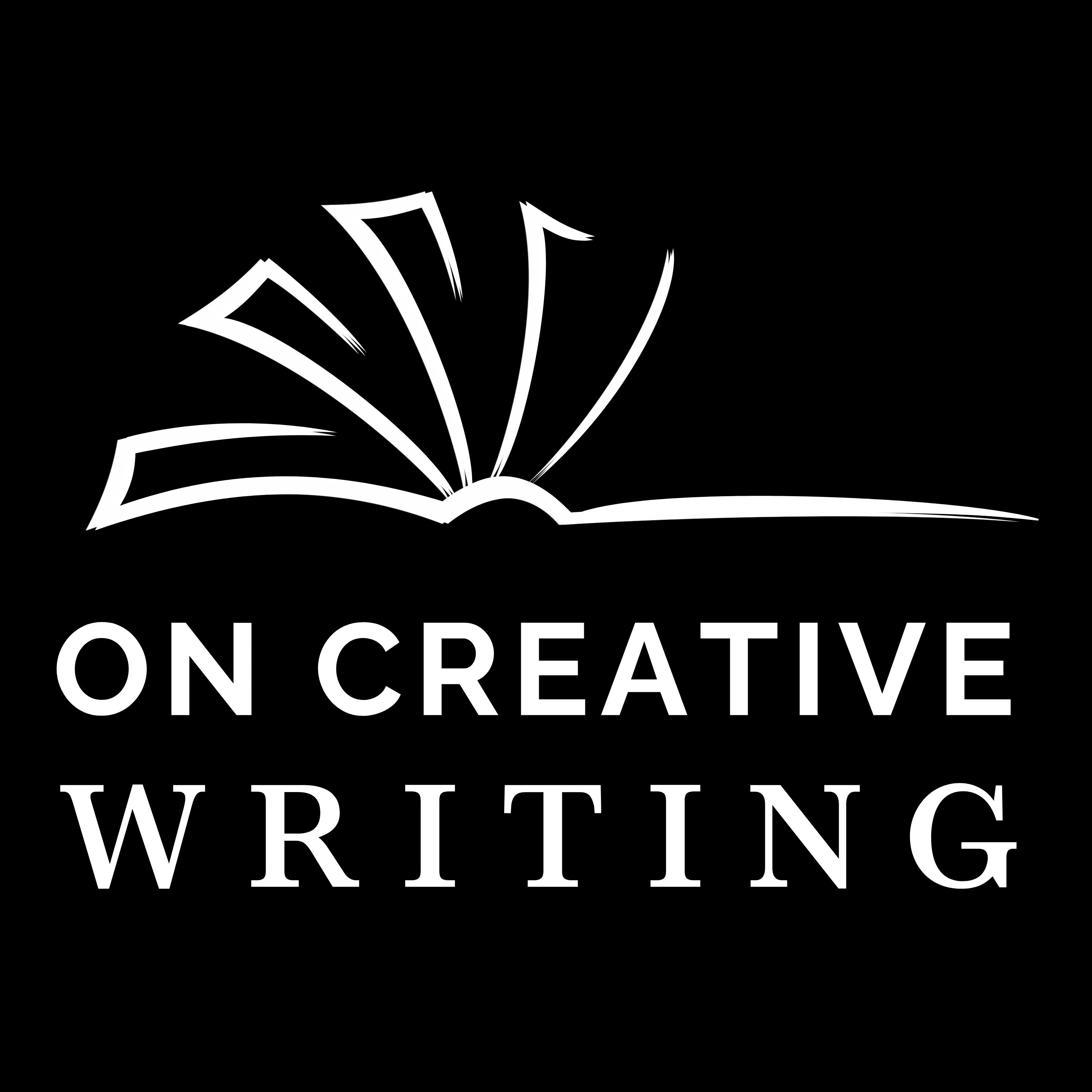On Creative Writing

On Creative Writing
Podcast Description
On Creative Writing is a monthly podcast show exploring all things creative writing, including fiction, creative nonfiction, poetry, scripts, and essays. Hosts Emma Woodhouse and Sheelagh Caygill will interview knowledgeable and experienced guests about the craft of writing, the impact of AI on creative writing and publishing, book marketing, publicists, all types of publishing, agents, websites and online platforms, and much more. Creative writers Emma and Sheelagh met during their MA in Contemporary Creative Writing at Northeastern University London. Discover more at Oncreativewriting.com.
Podcast Insights
Content Themes
The podcast explores a wide array of topics related to the craft of writing. Themes include the impact of AI on creative processes, book marketing strategies, the nuances of character development, and the importance of diversity in literature. Recent episodes cover storytelling intricacies from authors like Allister Thompson discussing novel outlining to Anthony Bidulka emphasizing understanding one's 'Why' as a writer.

On Creative Writing is a monthly podcast show exploring all things creative writing, including fiction, creative nonfiction, poetry, scripts, and essays. Host Sheelagh Caygill will interview knowledgeable and experienced guests about the craft of writing, all genres of writing,the impact of AI on creative writing and publishing, book marketing, publicists, all types of publishing, agents, websites and online platforms, and much more. Sheelagh is completing an MA in Contemporary Creative Writing at Northeastern University London. Discover more at Oncreativewriting.com.
In this episode of the On Creative Writing podcast, host Sheelagh Caygill sits down with novelist and poet Kim Farner to discuss her latest poetry collection, The Pollination Field, published by Turnstone Press of Winnipeg, Manitoba.
This engaging conversation delves into the book’s rich tapestry of themes, including the vital role of pollinators in our ecosystems, the enduring power of myth, the intersections of feminism and environmental change, and the deeply personal transformation that underpins Kim’s work.
Throughout the episode, Kim offers listeners a glimpse into her creative process, sharing how her Sudbury roots and the landscapes of Northern Ontario have shaped her poetic voice. She reflects on the ways her upbringing and the natural world around her have influenced her writing, from the imagery she employs to the subjects she explores. Kim also discusses the profound impact of her Irish heritage, weaving together stories of family, folklore, and cultural memory that inform her poetry’s sense of place and identity.
Listeners are treated to readings from The Pollination Field, as Kim brings her evocative language to life and provides context for the collection’s central motifs. Sheelagh and Kim explore how the act of pollination becomes a metaphor for connection, renewal, and the interdependence of all living things. The conversation touches on the challenges and rewards of writing about environmental issues through a feminist lens, and how poetry can serve as both witness and catalyst for change.
Kim opens up about her experiences with grief and loss, and how these emotions have found expression in her evolving poetic forms. She shares insights into the importance of allowing oneself to experiment with structure and voice, and the ways in which poetry can offer solace and understanding during difficult times. The discussion also highlights the significance of reading deeply and widely, with Kim offering thoughtful advice for new poets on finding inspiration, honing their craft, and building resilience in the face of rejection.
As the episode draws to a close, Kim reads her poignant poem “Grief,” inviting listeners into a moment of reflection and empathy. She also shares a preview of her upcoming projects, including a new novel in progress and a series of workshops aimed at fostering creativity and community among emerging writers.
Whether you’re a seasoned poet, an aspiring poet, or a lover of poetry, this episode offers a wealth of inspiration and wisdom. Join Kim and Sheelagh for a heartfelt exploration of poetry, place, and the transformative power of words.
The Pollination Field is available from Turnstone Press and all good bookstores and online stores.
Episode information and links:
Jericho Brown, creator of the Duplex form.
Càirdeas is the Gaelic word for kindred friend. Càirdeas is an ekphastic poem in The Pollination Field. Explore ekphrastic poetry:
https://crae.mcgill.ca/article/view/56/106, and
https://www.malahatreview.ca/interviews/reibetanz_interview.html
Books Kim recommends:
Poetry Unbound: 50 Poems to Open Your World, by Pádraig Ó Tuama
How a Poem Moves: A Field Guide for Readers of Poetry, by Adam Sol.On the poem ”Grief”, Kim explains: ”The poem, ”Grief”, along with the other very short poems in the collection, speaks to a rough year. I was struggling with long Covid and the end of a close friendship and it seemed nothing was working well. The crab apple tree in my front yard did not flower, for the first time in ten years, and so I found it was symbolic of how grief can find be reflected in the natural world. In this case, the tree taught me about how some years are ”fallow seasons,” more about rest and acceptance than about persistence and stubbornness. ”Grief” is also an attempt to play with shorter poetic forms, to try and get at a crystallized image and then extend the metaphor. ”

Disclaimer
This podcast’s information is provided for general reference and was obtained from publicly accessible sources. The Podcast Collaborative neither produces nor verifies the content, accuracy, or suitability of this podcast. Views and opinions belong solely to the podcast creators and guests.
For a complete disclaimer, please see our Full Disclaimer on the archive page. The Podcast Collaborative bears no responsibility for the podcast’s themes, language, or overall content. Listener discretion is advised. Read our Terms of Use and Privacy Policy for more details.